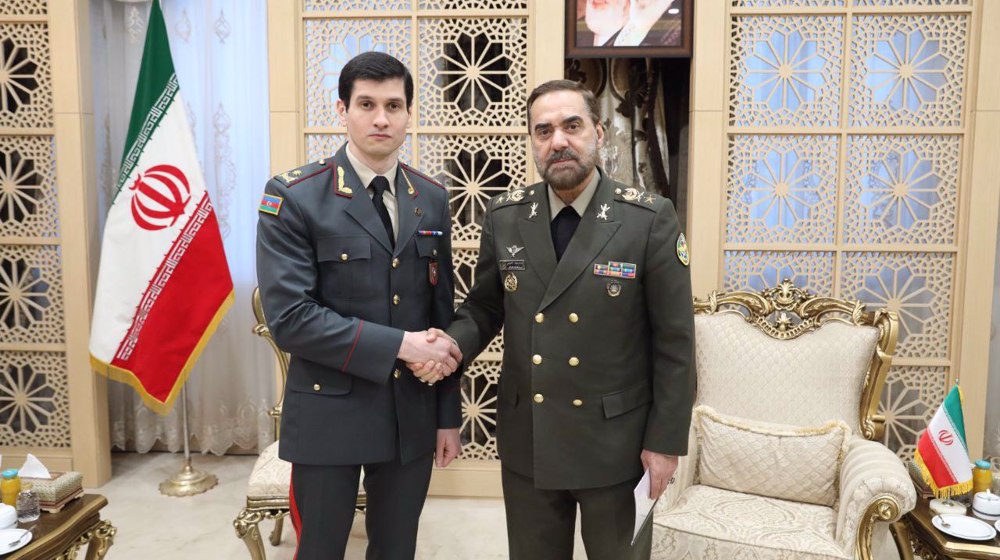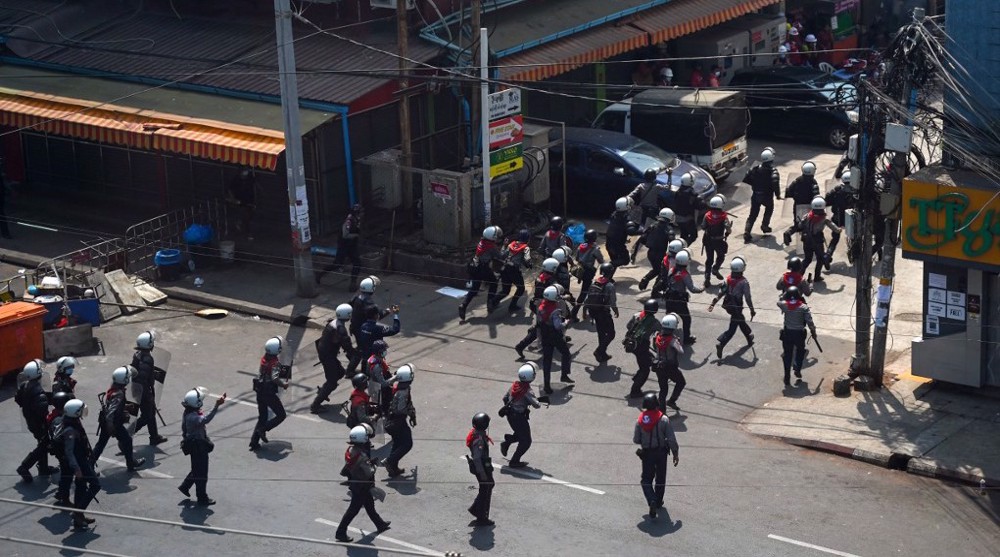Myanmar unrest: Deadly crackdown in response to protests, general strike
Two protesters have been killed as anti-coup rallies continue across Myanmar amid calls for a general strike and as the military junta ramps up night raids to arrest rally organizers.
In its latest move to consolidate power, the military occupied hospitals and university campuses on Monday in the face of mass resistance to its violent rule.
The Southeast Asian country plunged into chaos after the junta staged a coup d’état in the early hours of February 1, ousting elected leader Aung San Suu Kyi and her party officials.
The junta leaders have responded to the protests with an increasingly brutal crackdown, which includes night raids on activists and their arrests.
So far, more than 50 people have been killed and nearly 1,800 arrested, according to sources monitoring the police and military response to the chaotic situation.
Two protesters died on Monday after being shot in the head as shops, factories and banks were closed in the main city of Yangon in a general strike, that has been organzied as part of a civil disobedience movement against the coup.
Photos posted on social media showed the bodies of two men lying on the street in the northern town of Myitkyina.
Eye witnesses said they were taking part in the protest when police fired stun grenades and tear gas to disperese the crowds. Several people were then hit by gunfire from nearby buildings.
One witness, who said he helped move the deceased, told Reuters that the two people were shot in the head and died on the spot. Three people were injured.
Monday's demonstrations followed the trade unions' call for mass strikes to bring the country's economy to a halt.
“To continue economic and business activities as usual... will only benefit the military as they repress the energy of the Myanmar people,” eighteen unions said in a joint statement. “The time to take action in defense of our democracy is now,” they added.
The impact of the general strike has been felt at every level of the national infrastructure, with shuttered hospitals, empty ministry offices, and banks unable to operate.
The junta has warned that civil servants who take part in the general strike “will be fired.”
The coup and the ensuing crackdown have drawn widespread international condemnation as well as sanctions against the top generals.
On Sunday, Australia’s Foreign Minister Marise Payne said Canberra will stop military ties with Myanmar and only deal with non-government groups in the country.
Payne said Canberra was suspending its defense cooperation programs with Myanmar, which included English language training, and was reviewing its aid program so money was channeled away from government agencies.
The United Nations Special Envoy on Myanmar Christine Schraner Burgener on Friday demanded an end to the “repression” of the protests and urged the Security Council to act.
Myanmar’s army chief has rebuked the UN's interference, claiming it had no right to meddle in his country’s “internal” affairs.
The UN had previously condemned Myanmar after more than 730,000 Rohingya Muslims fled the country’s western Rakhine State to neighboring Bangladesh following a bloody crackdown in 2017 that the international body said was perpetrated with “genocidal intent.”
Myanmar’s military denies any responsibility for the dozens of people killed in the recent protests, defending the coup against the elected government.
Suu Kyi has not been publicly seen since she was detained by the junta.
Scores killed as Takfiri terrorists target Shia Muslims in Pakistan
Pezeshkian to US, Europeans: You are killing women, children
VIDEO | COP29: another climate failure?
ICC issues arrest warrants for Netanyahu, Gallant for war crimes
Israeli strikes kill 88 Palestinians in northern Gaza
American voters plainly rejected complicity in Gaza genocide: Iran FM spox
ICC should issue more arrest warrants for Israeli authorities over Gaza genocide: UN expert
Israel using AI weapons co-produced by India in Gaza genocide: Report













 This makes it easy to access the Press TV website
This makes it easy to access the Press TV website